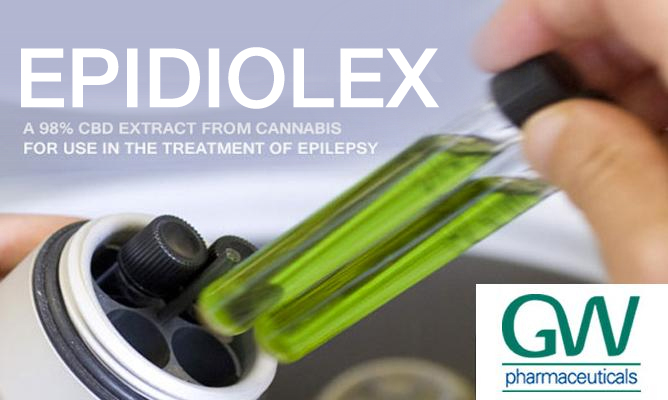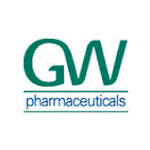
Preliminary Study: CBD May Help Battle Treatment-Resistant Epilepsy
Epilepsy is a common neurological disorder experienced by children, and approximately 20% of patients (around 93,200 children in the US, and around 153,000 children in Europe) are unable to control their seizures with commonly used medications. Due to the growing evidence that some cannabinoids found in cannabis may help to reduce neuron hyperexcitability, certain strains are being used to help treat epilepsy.
This is particularly true of cannabis strains with a high concentration of cannabidiol (CBD). In turn, pharmaceutical companies have been working on ways repeat this success with cannabis-based drugs.
GW Pharmaceuticals Releases Preliminary Data On Epidiolex
Epidiolex is a standardized, high-CBD cannabis drug produced by GW Pharmaceuticals, a company based in the United Kingdom. Preliminary data from a recent clinical trial on Epidiolex was released in June, and it shows evidence of the product’s probable efficacy for treatment-resistant convulsive and non-convulsive epilepsy (e.g. Dravet syndrome, Lennox-Gastaut syndrome) in children.
27 epilepsy patients (average age of 10.5 years; one participant was 26 years old), with Dravet syndrome as the most prevalent condition, were entered into the uncontrolled trial for 12 weeks at 2 different US hospitals under Investigational New Drug (IND) applications through the FDA. Epidiolex was used as an add-on therapy to the current treatment regimen of the participants -participants were each taking 2.7 other anti-epileptic drugs on average at the time of trial.
“33% of participants with Dravet syndrome were “seizure-free” at the end of the 12-week trial.”
While some participants did not experience a clinical effect, many showed significant reduction in frequency of seizures.
Overall, many of those who showed reduction in seizures in response to Epidiolex had reduced seizures by more than 50%.
 The average reduction in seizure-frequency was 44%, while the median (i.e. most frequently occurring) reduction in seizure frequency was 42%. In 48% of cases, seizure frequency was reduced by at least 50%; 41% of participants’ seizure frequency was reduced by at least 70%, and 22% of participants’ seizure frequency was reduced by at least 90%. 15% of participants were seizure-free at the end of the 12-week trial.
The average reduction in seizure-frequency was 44%, while the median (i.e. most frequently occurring) reduction in seizure frequency was 42%. In 48% of cases, seizure frequency was reduced by at least 50%; 41% of participants’ seizure frequency was reduced by at least 70%, and 22% of participants’ seizure frequency was reduced by at least 90%. 15% of participants were seizure-free at the end of the 12-week trial.
The results for participants with Dravet syndrome were even more impressive. The average reduction in seizure-frequency was 52%, and the median reduction in seizure frequency was 63%. In 56% of cases, seizure frequency was reduced by at least 50%; 44% of participants’ seizure-frequency was reduced by 70%, and 33% of participants’ seizure-frequency was reduced by 90%. 33% of participants with Dravet syndrome were seizure-free at the end of the 12-week trial.
Safety information was taken from 62 participants, including those in an Epidiolex trial who had not completed the 12-week trial at the time of the report release. The most frequently occurring side-effect (experienced by 40% of participants) was somnolence (i.e. drowsiness). Other side-effects, in order of prevalence, include: fatigue (26%), diarrhea (16%), decreased appetite (11%), and increased appetite (10%). Within the trial, there was one death due to SUDEP (sudden unexpected death in epilepsy), which was not deemed a result of Epidiolex use. Side-effects were mild or moderate in 80% of cases.
Researchers Are Encouraged By Epidiolex Preliminary Trial Data
According to the report released by GW Pharmaceuticals, “It should be noted that expanded access studies, sometimes called ‘compassionate use’, are uncontrolled, carried out by individual investigators, not conducted in strict compliance with Good Clinical Practices and not intended to be analyzed together as study data.”
“The initial open-label study with Epidiolex has provided encouraging results. Some children have had marked reductions in their seizures and overall, the medication has been well tolerated.” – Orrin Devinsky, MD
Additionally, it is important to note that Epidiolex provided no reduction in seizure frequency for some participants, and therefore is not effective for all patients.
However, Dr. Orrin Devinsky, Director of NYU Comprehensive Epilepsy Center explains, “The initial open-label study with Epidiolex has provided encouraging results. Some children have had marked reductions in their seizures and overall, the medication has been well tolerated.”
Epidiolex currently has both “orphan drug” and “Fast Track” classification through the FDA. It will likely enter Phase 2/3 trials in the upcoming months of 2014. This is expected to be followed by a Phase 3 trial for Dravet syndrome and two Phase 3 trials for Lennox-Gastaut syndrome in early 2015.
Editor’s Note: It has been suggested that THC-A may be as effective as CBD in treating epileptic seizures. More information can be found here.
GW Pharmaceuticals was founded in 1998 and is listed on both the NASDAQ Global Market (GWPH) and AIM, a market of the London Stock Exchange. GW is licensed by the UK Home Office to work …
